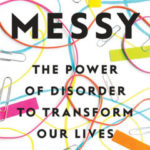 Stress is toxic, so the thinking goes, and we should do anything we can to minimize it. That’s what health psychologist Kelly McGonigal, Ph.D., thought, too — until she began looking at research that led her to a very different conclusion. “The latest science reveals that stress can make you smarter, stronger, and more successful,” she writes in her recent book, The Upside of Stress: Why Stress Is Good for You, and How to Get Good at It. “It helps you learn and grow. It can even inspire compassion.”
Stress is toxic, so the thinking goes, and we should do anything we can to minimize it. That’s what health psychologist Kelly McGonigal, Ph.D., thought, too — until she began looking at research that led her to a very different conclusion. “The latest science reveals that stress can make you smarter, stronger, and more successful,” she writes in her recent book, The Upside of Stress: Why Stress Is Good for You, and How to Get Good at It. “It helps you learn and grow. It can even inspire compassion.”
A pivotal discovery for McGonigal, a lecturer at Stanford University, was evidence that how we think about and respond to stress has a powerful influence on how it affects us. “By rethinking and even embracing stress,” she writes, “you can change its effect on everything from your physical health and emotional well-being to your satisfaction at work and hopefulness about the future.”
Among the positive effects of stress: It motivates you to connect with others. In a 2013 TED Talk, McGonigal cites a study that tracked about 1,000 adults in the United States, ranging in age from 34 to 93. Researchers asked them about their stress levels in the previous year, as well as how much time they spent helping out friends and neighbors. They found that every major stressful life experience, such as financial difficulties or a family crisis, increased the risk of dying by 30 percent — but not for everyone.
“People who spent time caring for others showed absolutely no stress-related increase in dying,” McGonigal says in her TED Talk. “Zero. Caring created resilience. And so we see … that the harmful effects of stress on your health are not inevitable. How you think and how you act can transform your experience of stress. When you choose to view your stress response as helpful, you create the biology of courage. And when you choose to connect with others under stress, you can create resilience. Now I wouldn’t necessarily ask for more stressful experiences in my life, but this science has given me a whole new appreciation for stress.”



